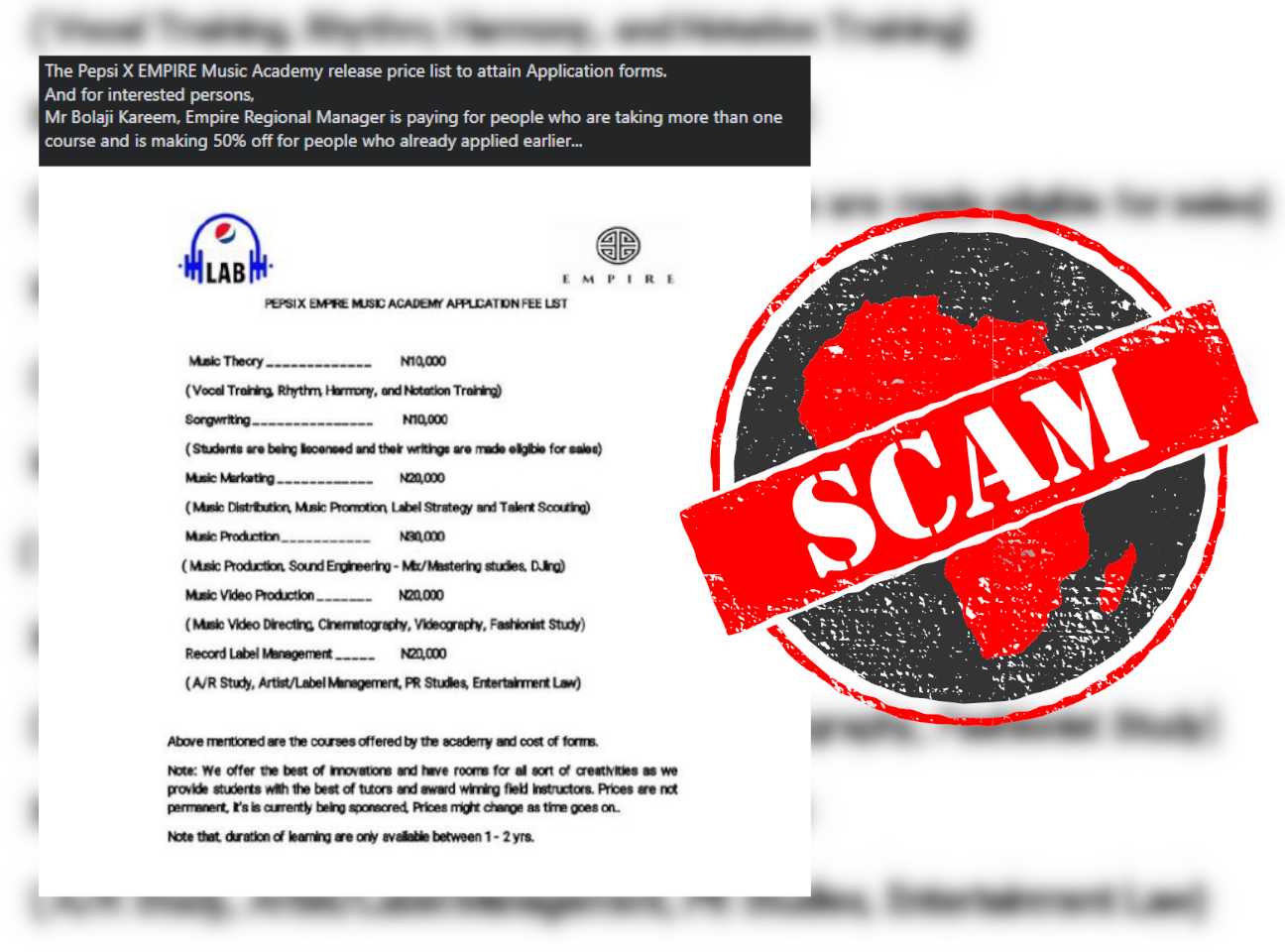IN SHORT: Many aspiring musicians would welcome the opportunity to study at the Pepsi Music Academy in Nigeria. But claims that the application forms come with a price tag are false.
Soft drink manufacturer Pepsi, in partnership with music distribution company Empire, has launched a music academy in Nigeria.
A number of social media posts claim that those interested in studying at the Pepsi Music Academy have to pay a fee to receive the application forms.
One post, dated 5 November 2023, reads: “The Pepsi X EMPIRE Music Academy release price list to attain Application forms. And for interested persons, Mr Bolaji Kareem, Empire Regional Manager is paying for people who are taking more than one course and is making 50% off for people who already applied earlier.”
According to Pepsi, the academy is a music education programme and talent accelerator that gives participants the opportunity to learn about music from professionals. The company’s collaboration with Empire has been widely reported in the news.
Similar posts can be found on Facebook here, here, here, here and here.
But is there a fee for the application forms? We checked.

'Disregard false application fee reports,’ Pepsi tells Nigerians
Pepsi Nigeria issued a disclaimer denying the claim on their official Facebook page.
“The Pepsi Music Academy is 100% free. Disregard and report any individuals or entities disguising as representatives of Pepsi or EMPIRE asking you to pay for any phase of the Pepsi Music Academy,” the company wrote.
The company also encouraged interested candidates to visit the academy’s official website for more information. We viewed the website and found that the registration window had closed for 2023.
Republish our content for free
For publishers: what to do if your post is rated false
A fact-checker has rated your Facebook or Instagram post as “false”, “altered”, “partly false” or “missing context”. This could have serious consequences. What do you do?
Click on our guide for the steps you should follow.
Publishers guideAfrica Check teams up with Facebook
Africa Check is a partner in Meta's third-party fact-checking programme to help stop the spread of false information on social media.
The content we rate as “false” will be downgraded on Facebook and Instagram. This means fewer people will see it.
You can also help identify false information on Facebook. This guide explains how.




Add new comment